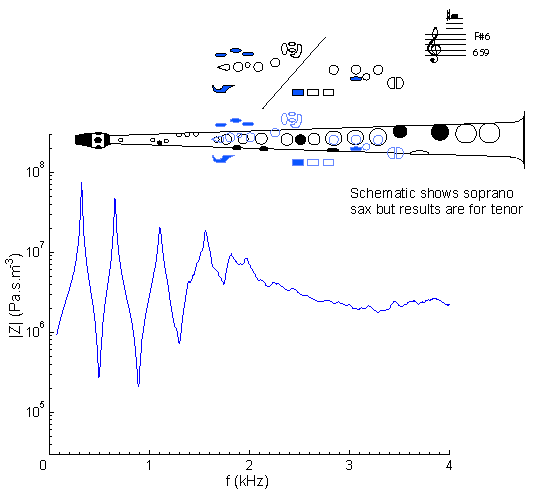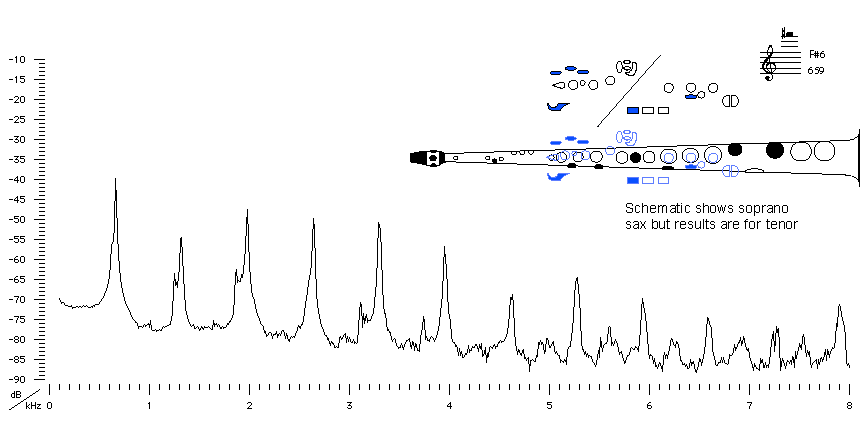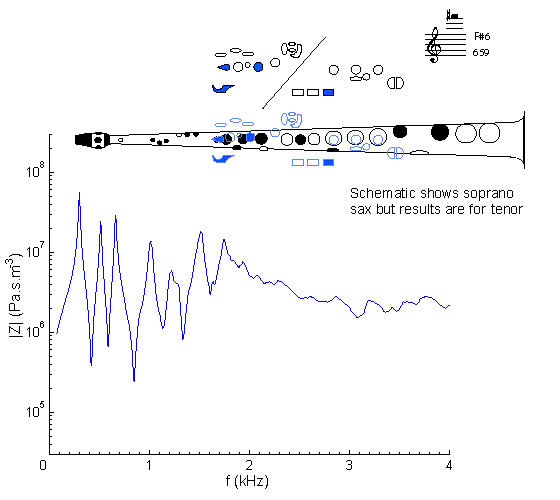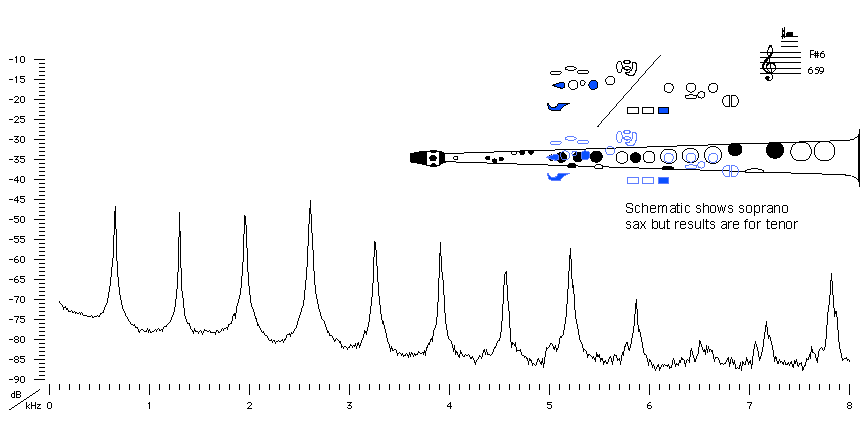| Acoustics of the saxophone |
Bb tenor saxophone |
F#6 |

|
Fingering Acoustic schematic Non-specialist introduction
to acoustic impedance Notes are the written pitch. |
Played with this fingering (not available on all instruments), this note is the highest note in the second register, meaning that it plays (normally) at the second peak on the impedance spectrum. There are no more tone holes to open to shorten the effective length of the tube and thereby raise the first and second peaks.
This fingering uses a register hole. This causes a leak in the bore that weakens the first impedance peak (although both peaks will play comfortably with different embouchures). Above the second peak, the curve is irregular: see the discussion in cut-off frequency.
Compare with the impedance spectrum for a soprano sax on written F#6: same fingering but sounding one octave higher.

Sound spectrum
of a Bb saxophone
played using fingering for F#6.
For more explanation, see
Introduction to saxophone acoustics.
Alternative Fingering |
tenor saxophone |
 |
Fingering Acoustic schematic Non-specialist introduction
to acoustic impedance Notes are the written pitch. |
Played with this fingering, this note is in the third register, meaning that it plays at the third impedance peak. It is also bordering on the altissimo or very high range. The weakness of the third peak (due to the relatively large cone angle of the saxophone) explains why notes in this range are hard to play and require the player to assist the weak impedance peak of the bore with a strong impedance peak of the vocal tract. See this page for an explanation and some interesting results.

|
Contact:
Joe Wolfe
/ J.Wolfe@unsw.edu.au |